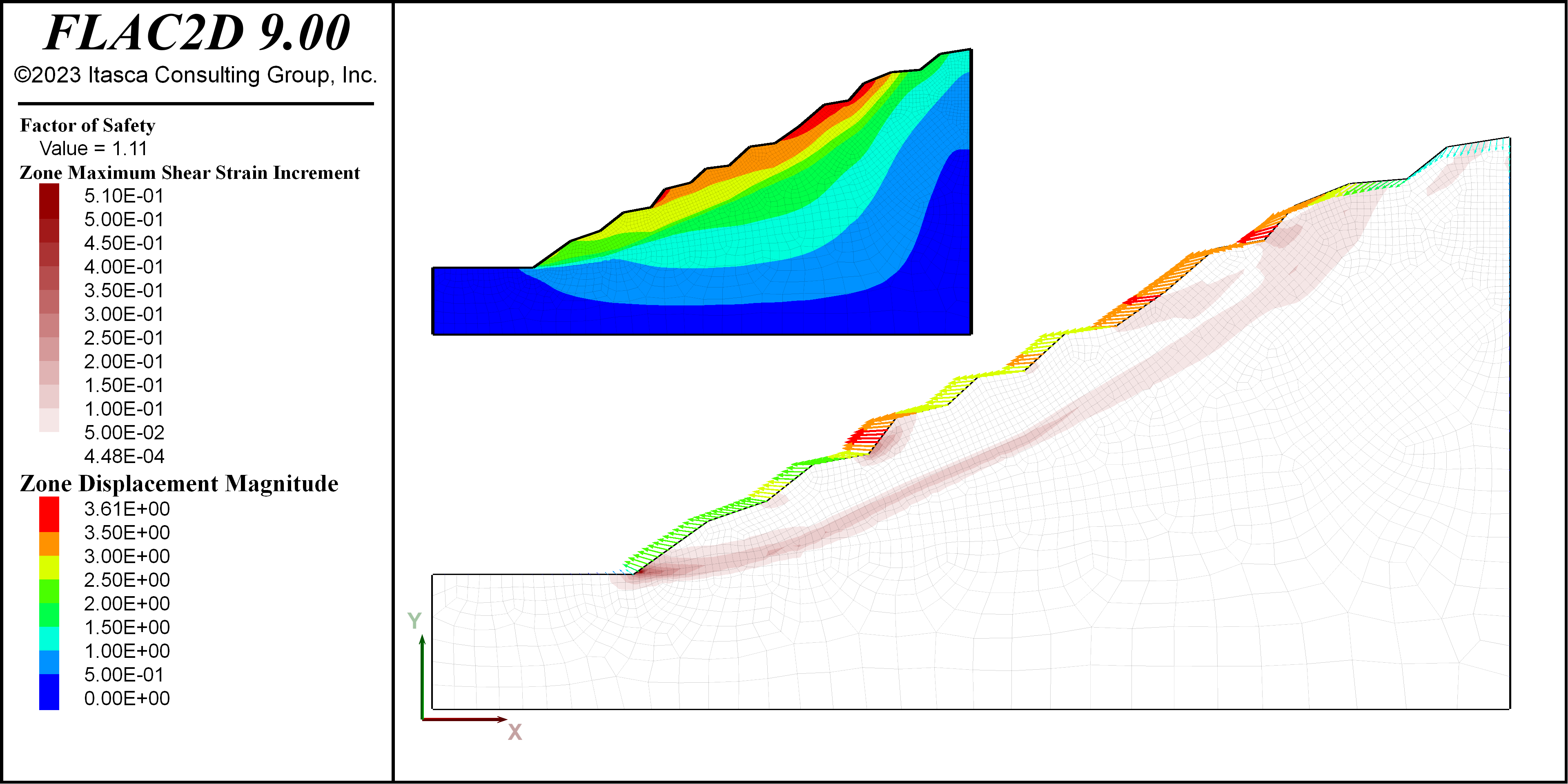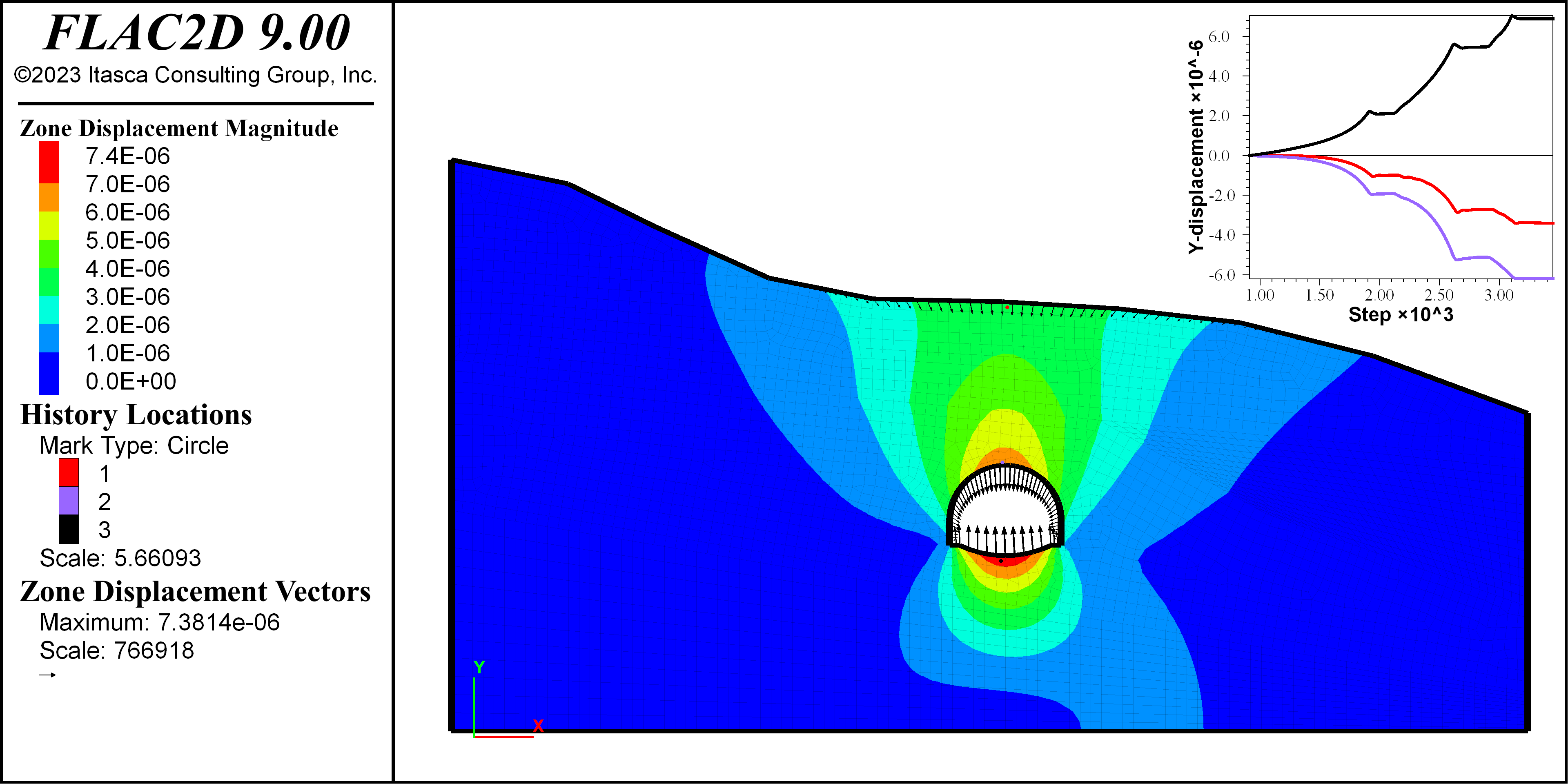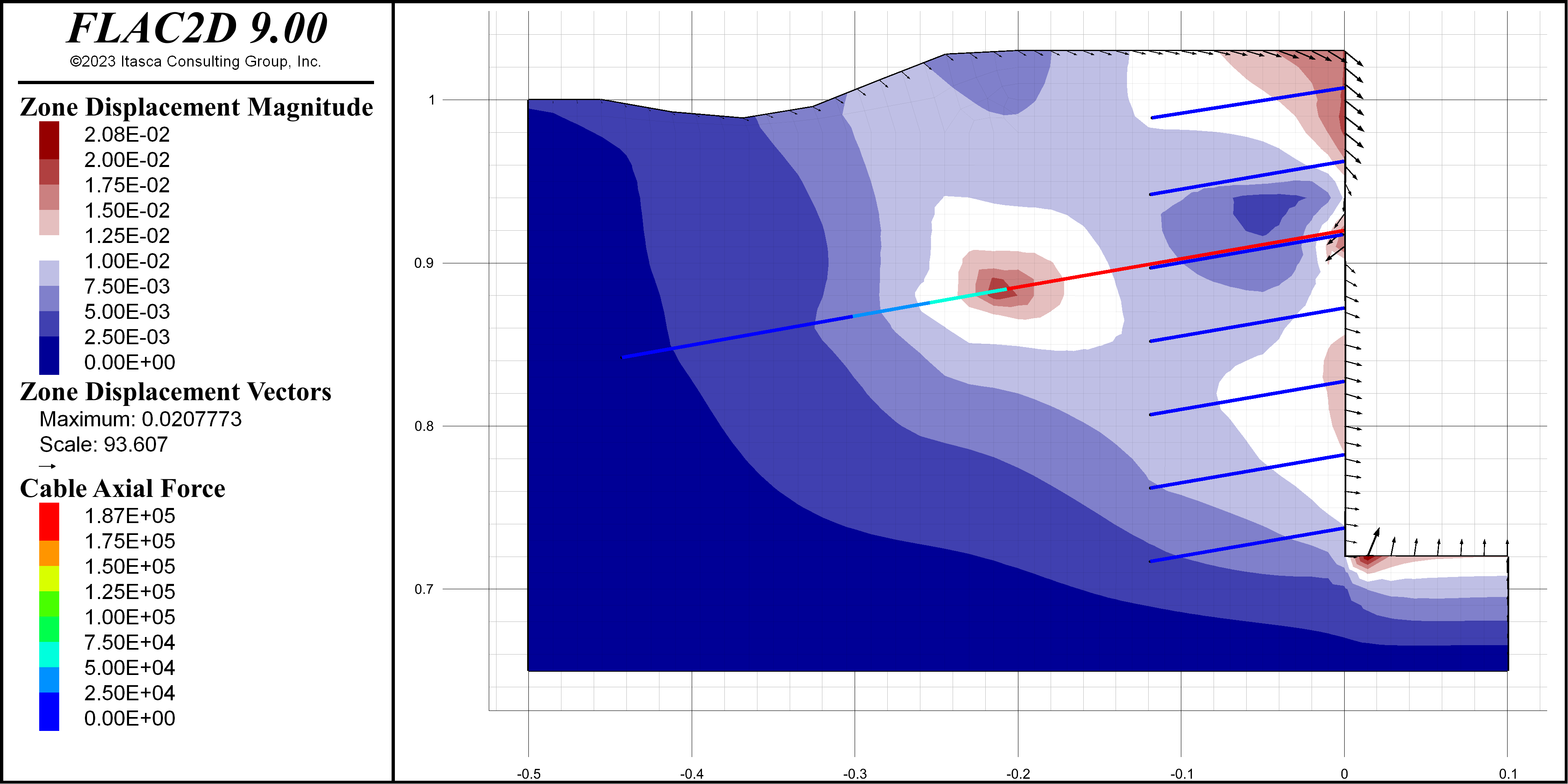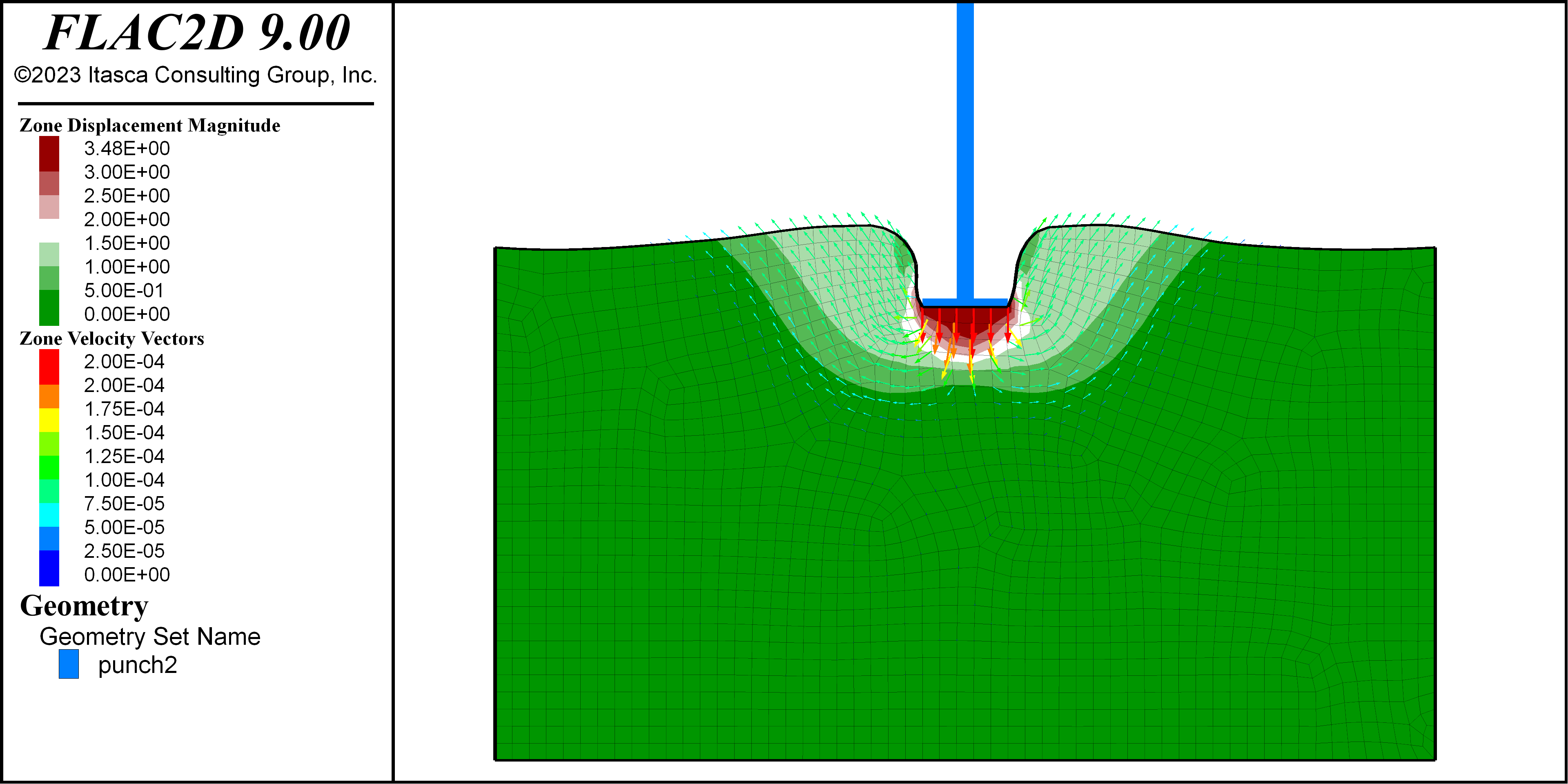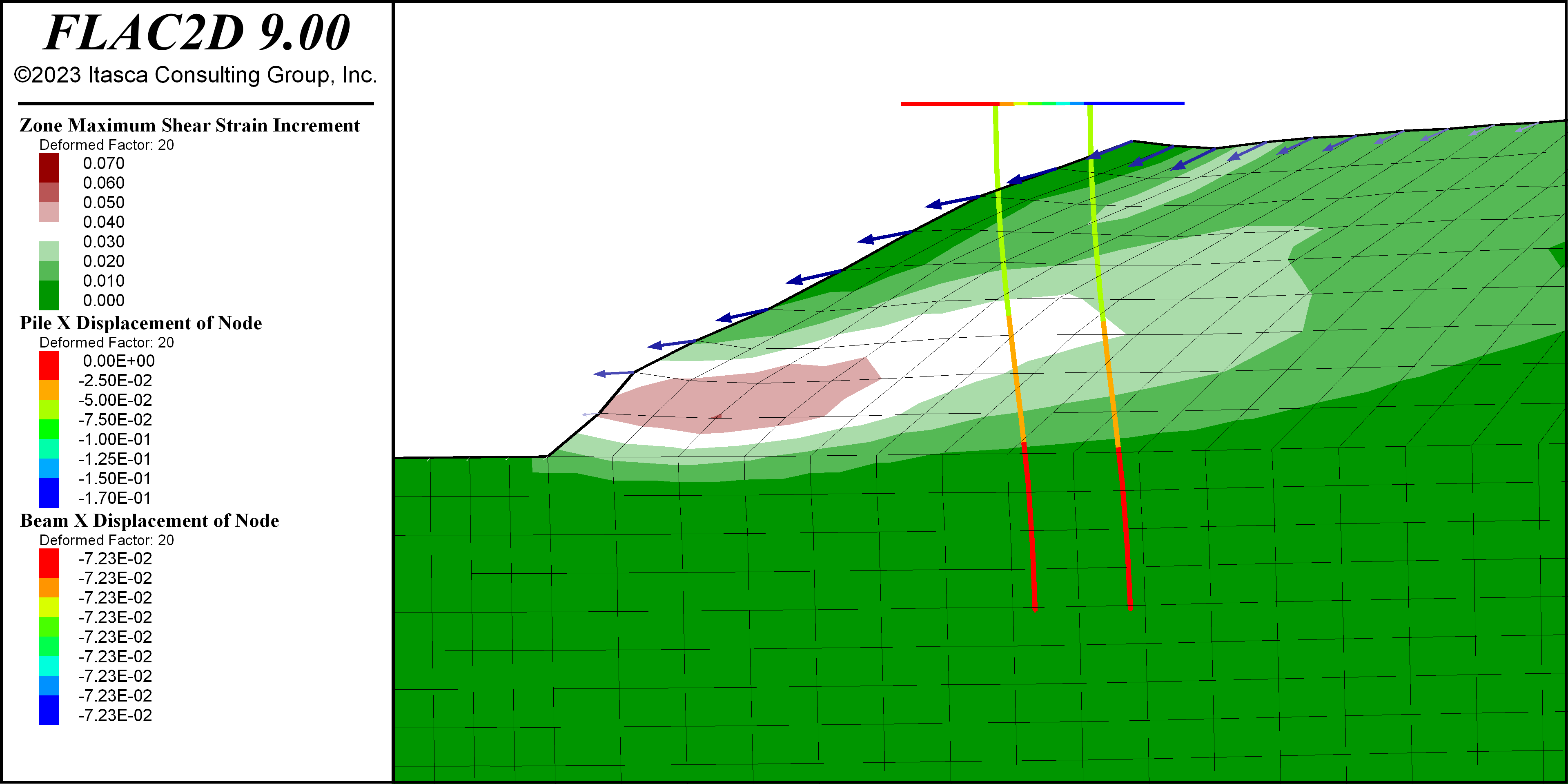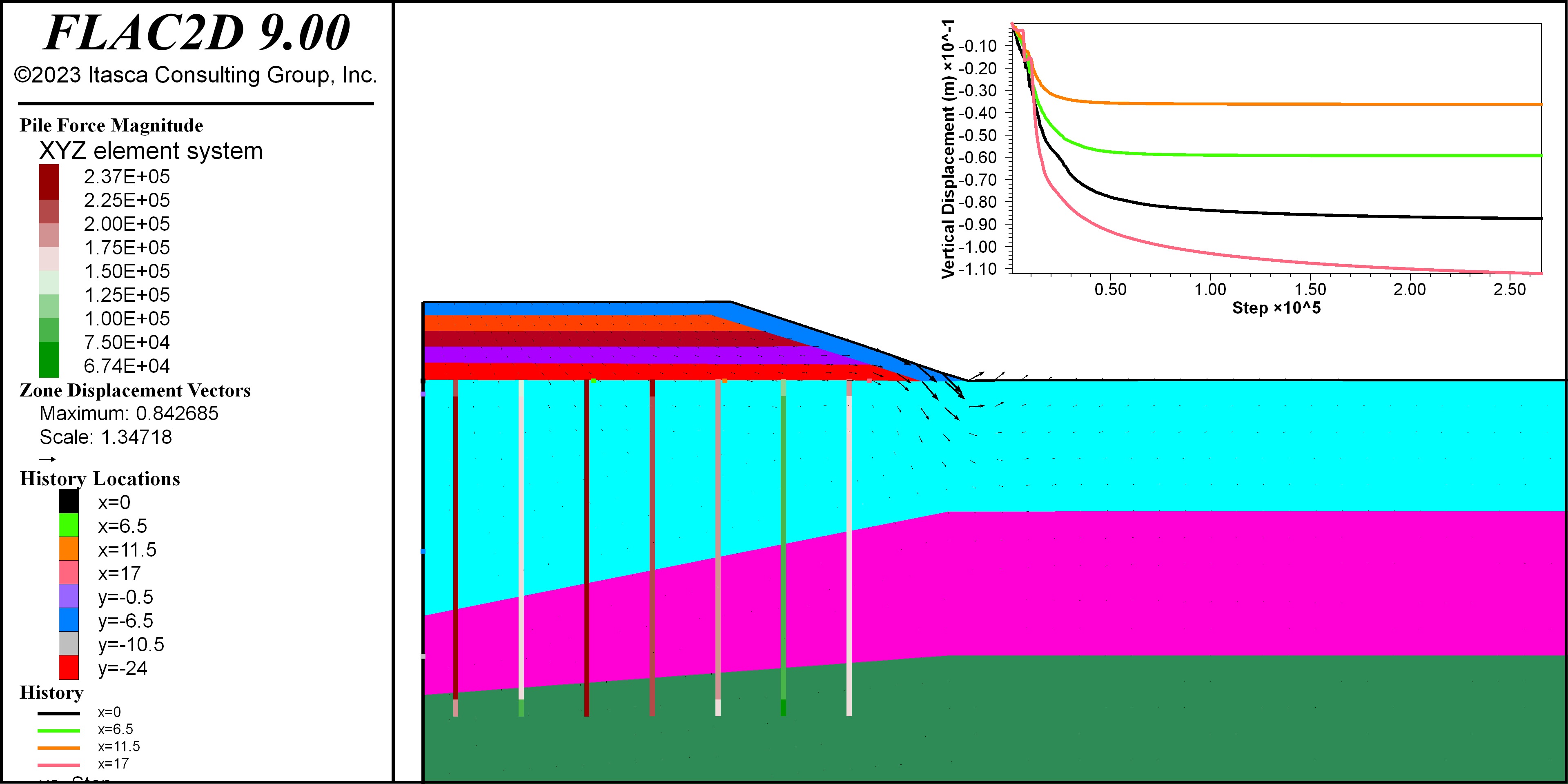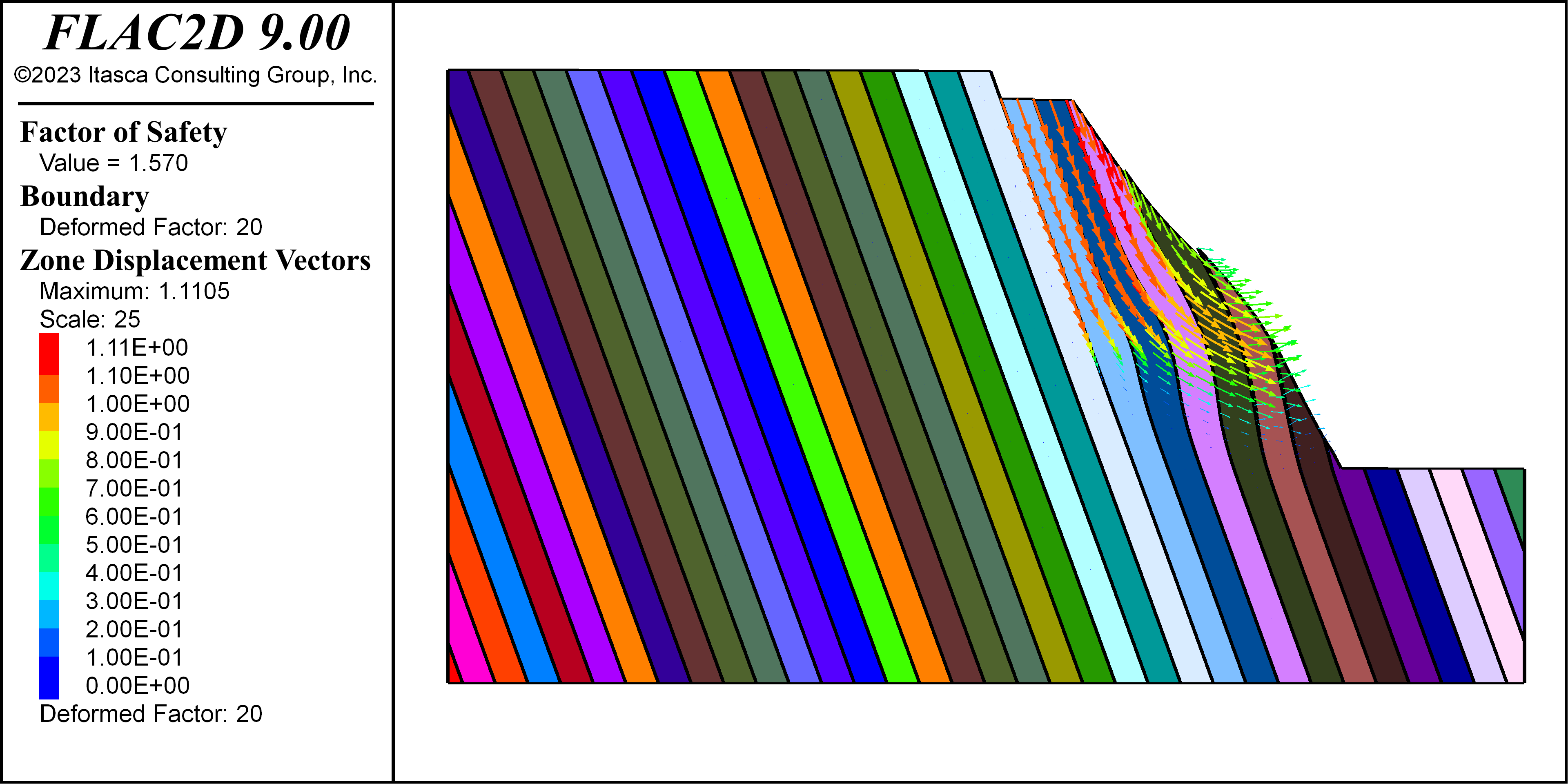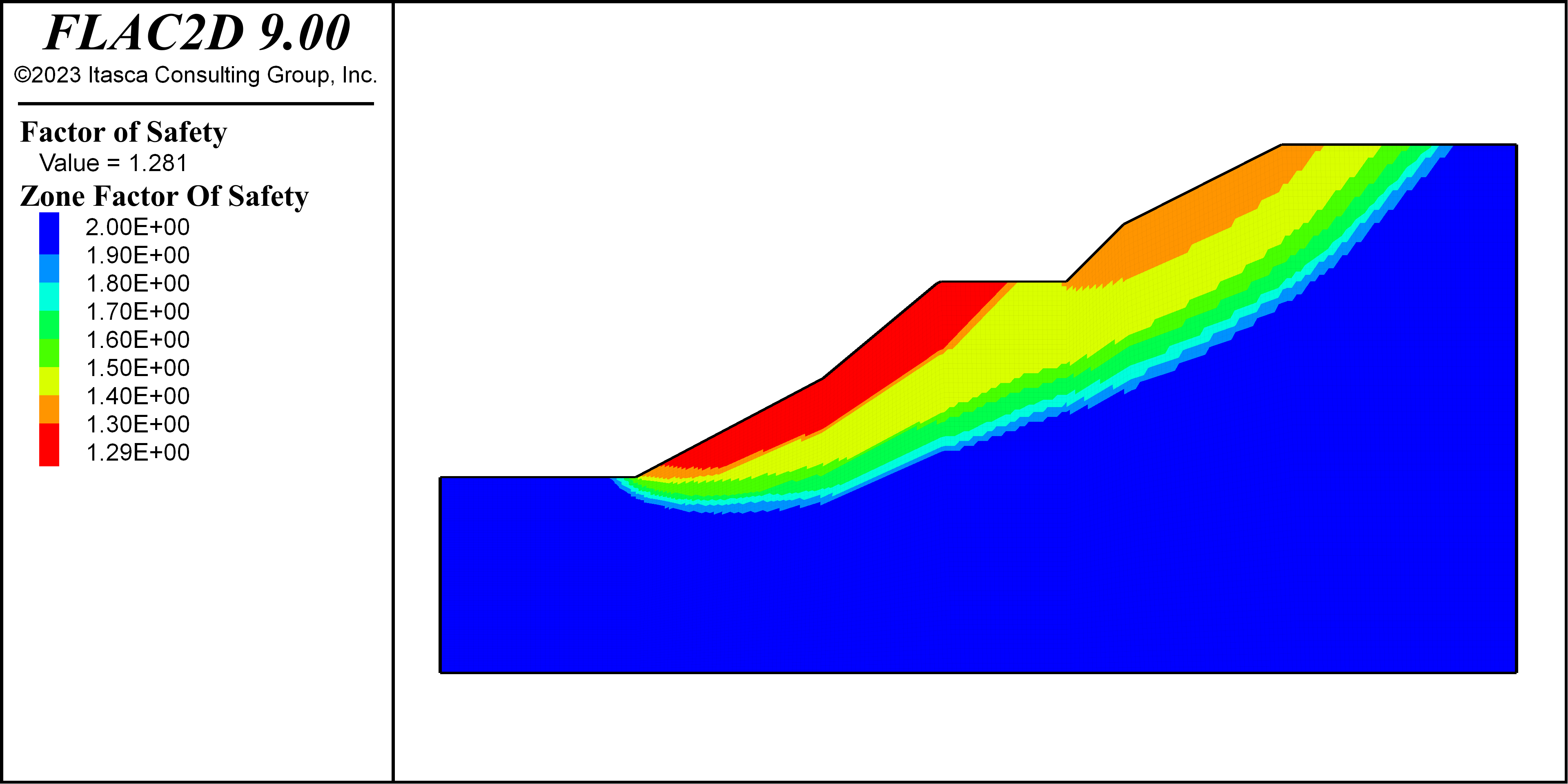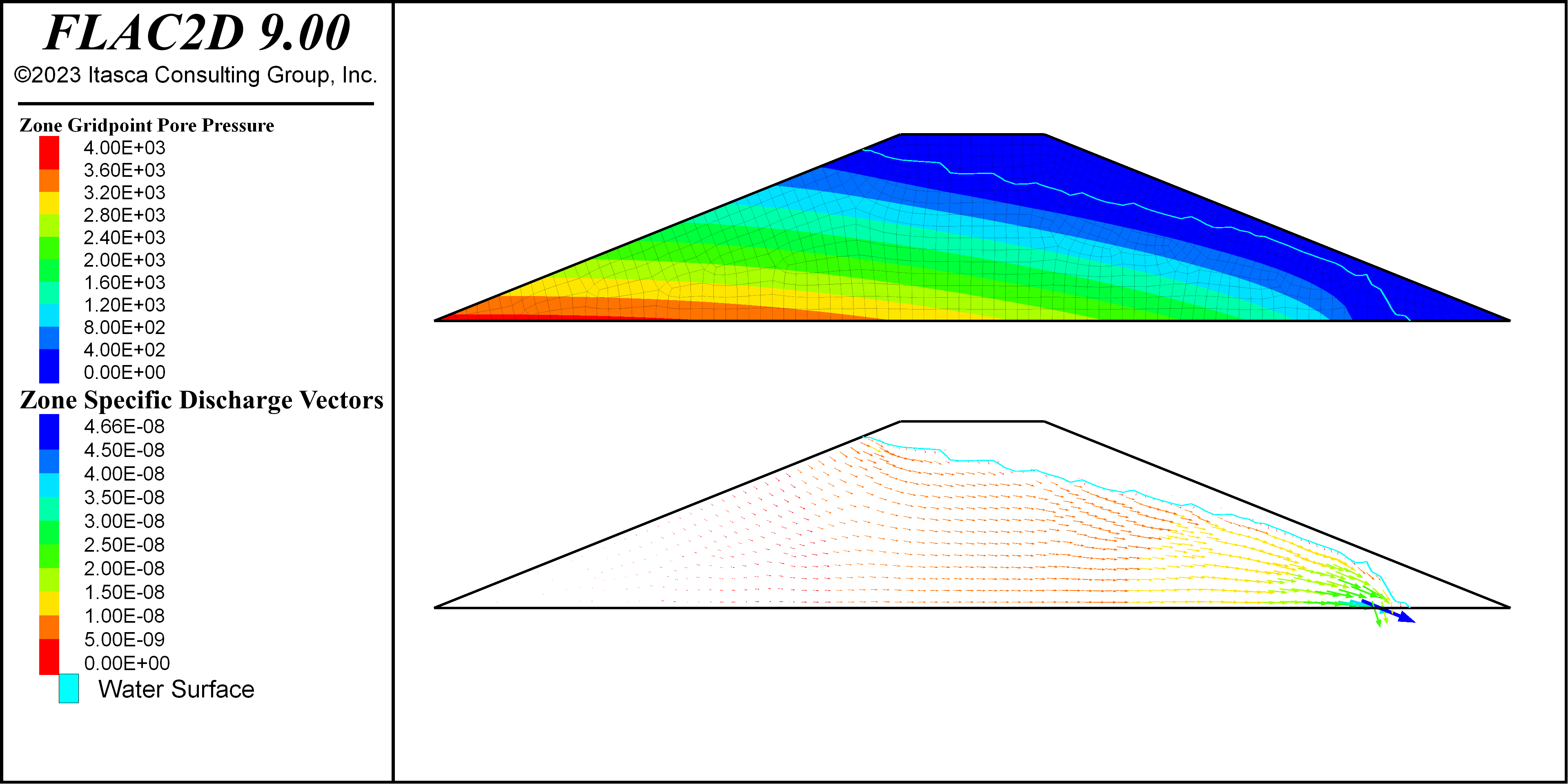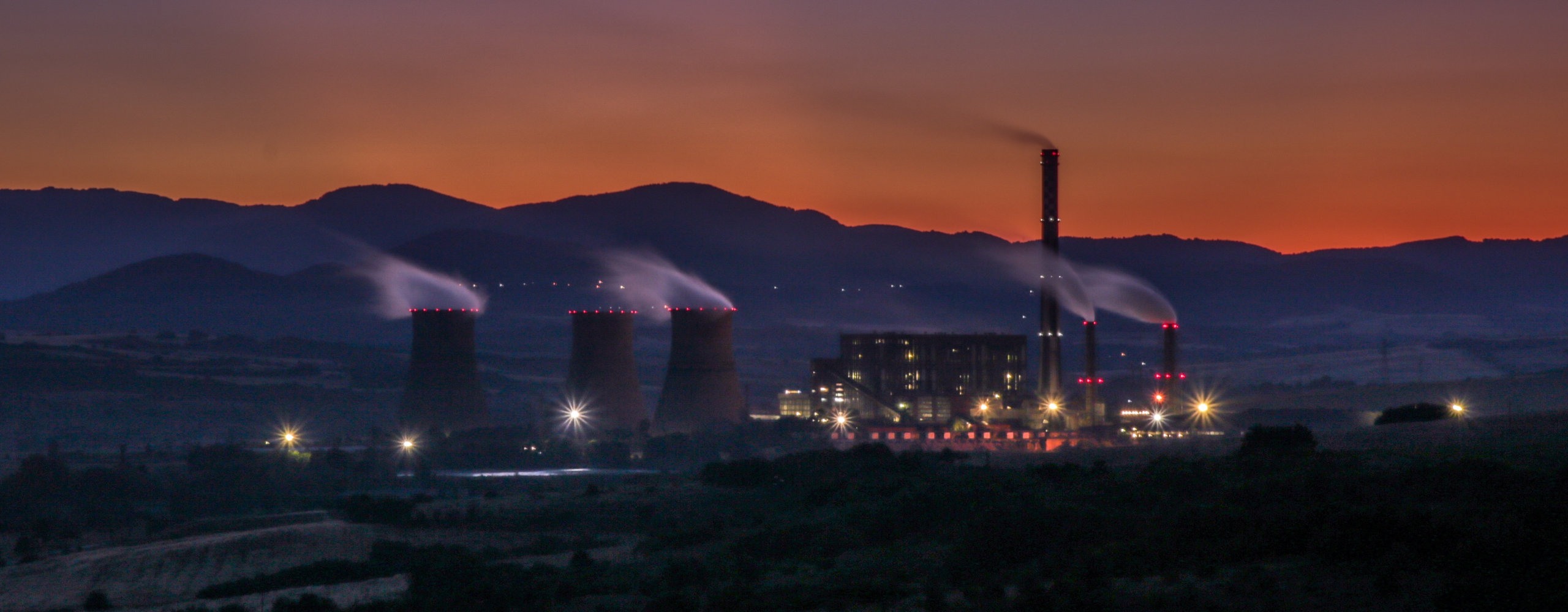Itasca has announced the release of FLAC2D v9
Itasca has announced the release of FLAC2D v9, revolutionizing the way we analyze and predict the behavior of complex soil and rock systems.
Minneapolis, MN – June 27, 2023 — Today, Itasca, a pioneer in developing innovative software solutions for the geomechanical engineering industry, proudly announces the release of FLAC2D v9. This state-of-the-art software package offers an advanced solution for engineering professionals seeking advanced two-dimensional geotechnical analysis and modeling capabilities.
Designed by geoengineers for geoengineers, FLAC2D is designed to provide engineers with an intuitive and robust platform for simulating and analyzing two-dimensional geotechnical and soil-structure interaction problems. It combines cutting-edge numerical algorithms with a user-friendly interface, allowing for efficient modeling of complex geomechanical problems. Common engineering use cases include structures and perform advanced analyses such as slope stability analysis, foundation design and soil structure interaction, retaining walls and excavation support, tunnels and underground structures, seismic design and analysis, ground improvement techniques, geotechnical hazard assessment, geotechnical design optimization, factor of safety calculations, groundwater flow and seepage analysis, and much more.
“FLAC2D v9 represents a significant leap forward in geotechnical engineering technology, empowering engineers to tackle complex challenges with greater efficiency, accuracy, and confidence,” said Jim Hazzard, Director, Product Development at Itasca. “With a range of powerful features and enhancements, this latest version cements Itasca's commitment to advancing the field of geotechnical analysis.”
Key Features of FLAC2D v9:
Advanced Material Models: FLAC2D offers an extensive library of advanced constitutive models, enabling accurate representation of a wide range of materials. These include over 20 built-in constitutive models for soil, rock, concrete, and metal, including liquefaction models P2P-Sand and NorSand, and (with the C++ UDM option) PM4Sand and PM4Silt.
Enhanced Modeling Capabilities: The expanded range of analysis tools in FLAC2D v9 empowers engineers to perform sophisticated geotechnical assessments such as slope stability, foundation design and soil-structure interaction, retaining walls and excavation support, groundwater flow simulations, seismic evaluations, and many more. These capabilities enable engineers to make informed decisions and mitigate potential risks more effectively.
Multi-Physics Coupling: To capture the complex interactions between different physical phenomena, FLAC2D provides the ability to couple different physics, such as thermal, fluid, creep, and mechanical processes. This integration enables a more comprehensive understanding of geotechnical problems and facilitates the analysis of coupled phenomena. Version 9 of FLAC2D and PFC can also be seamlessly integrated, combining continuum and discrete element modeling in the same program.
Dynamic Analysis: FLAC2D supports dynamic analysis of geotechnical systems subjected to seismic or blast loading. It incorporates robust numerical algorithms and time integration schemes to accurately simulate the transient response of soil and rock masses, aiding in the evaluation of dynamic behavior and structural stability. And with the new Maxwell damping, dynamic analyses can be calculated significantly faster.
Enhanced Visualization and User Interface: FLAC2D v9 boasts a revamped user interface with an emphasis on user experience. The intuitive and streamlined design provides effortless navigation, efficient data management, and improved visualization.
Integration with Industry Standards: FLAC2D v9 seamlessly integrates with various industry-standard file formats, including CAD and GIS software. This compatibility allows engineers to easily import and export project data, fostering collaboration and streamlining workflows across different software platforms.
Visualization and Post-Processing Tools: The software offers a suite of visualization and post-processing tools, allowing users to effectively analyze and interpret simulation results. These tools provide comprehensive graphical representations, contour plots, charts, and data extraction capabilities, aiding in the visualization and communication of complex modeling results.
Powerful Scripting: FLAC2D provides users the flexibility to choose between FISH and Python scripting, enabling users to choose based on their experience and needs. FISH has been updated to work faster and allow for seamless transition between Itasca software.
Efficiency and Speed: FLAC2D v9 introduces new optimized dynamic, fluid, and thermal solvers, resulting in significantly faster computation times, up to 100X faster than before. This means engineers can perform complex simulations and analyze large-scale models more efficiently, reducing project timelines and costs while maintaining high-quality results.
Contemporary Design: FLAC2D uses the same UI as our other software, providing new capabilities over FLAC, such as a Discrete Fracture Network (DFN) generator, automatic stress initialization, Python scripting, interactive help, zone joints, enhanced group logic, octree meshing, and results files. FLAC2D grids may be structured or unstructured, automatically generated, and no longer use i or j space — making model building easier than ever. Learn more about transitioning from FLAC to FLAC2D.
Addressing Future Challenges: FLAC2D v9 is built upon a common framework leveraged by other Itasca products such as the new FLAC3D v9 and the upcoming release of PFC v9. In doing so, Itasca streamlines the analysis of complex engineering challenges, reducing overhead, and simplifying project management. For example, when a challenge requires three-dimensional analysis, an engineer can easily move their work from FLAC2D to FLAC3D.
Itasca's commitment to the advancement of civil engineering is evident in every aspect of FLAC2D Version 9. With its innovative features, increased efficiency, and unparalleled modeling capabilities, this software represents a groundbreaking solution for geotechnical professionals worldwide.
"Our team has worked tirelessly to develop FLAC2D v9, addressing the evolving needs of the civil engineering community," said Augusto Lucarelli, Principal Engineer at Itasca. "We are thrilled to offer this powerful tool that empowers engineers to solve complex geotechnical challenges more efficiently. "
FLAC2D Version 9 is now available for purchase. For more information, including detailed product features, pricing, and licensing options, please visit https://www.itascacg.com/software/flac2d
Supporting Images
